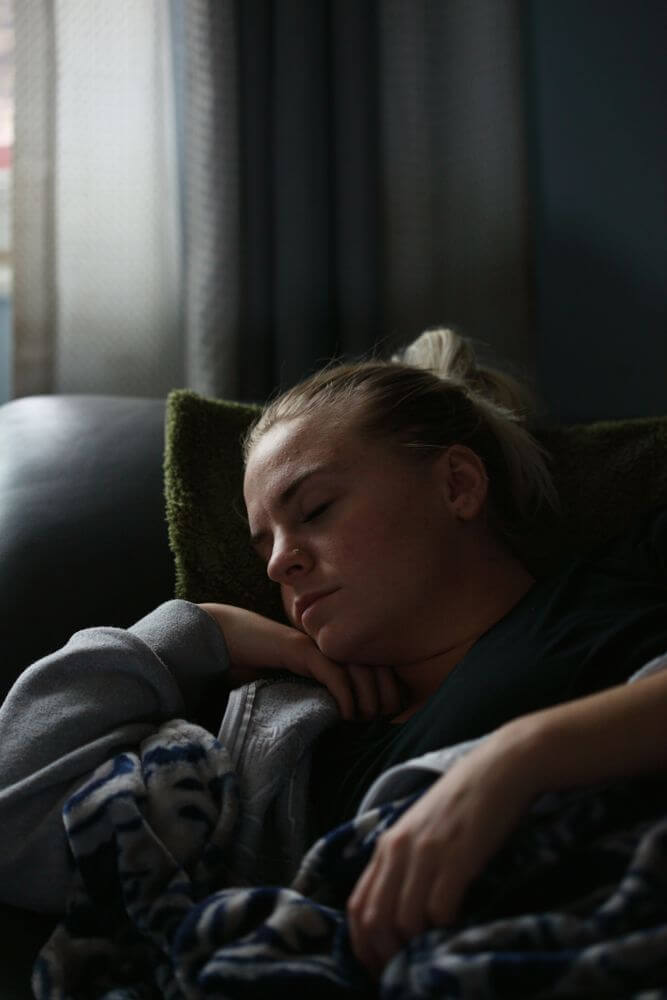Why Are My Breasts Getting Bigger After Menopause?
Why are my breasts getting bigger after menopause? What should I know about post-menopausal breast changes? Read on to learn about breast changes in menopause.
Summary
- A drop in oestrogen levels causes breasts to undergo morphological changes during and after menopause.
- Larger breasts might be a result of hormone-related weight gain.
- Weight distribution and genetic predisposition to developing larger breasts also play a role.
- Apart from enlargement, your breasts might undergo other changes which may be tackled by keeping healthy and active.
Introduction
Women experience many changes and symptoms during and after menopause – hot flashes, difficulty sleeping, sore joints, anxiety, hair loss, vaginal dryness and so much more. But one symptom that is not always expected is the potential changes to your breasts.
The transition through menopause may cause several changes to the breasts, potentially affecting their shape, sagginess and texture. They might even noticeably increase in size, with many women going up by two bra sizes or more.
This article explores why your breasts may get bigger, as well as other changes that can occur, and what can be done to help manage breast discomfort post-menopause.
Why Do Breasts Get Bigger With Age?
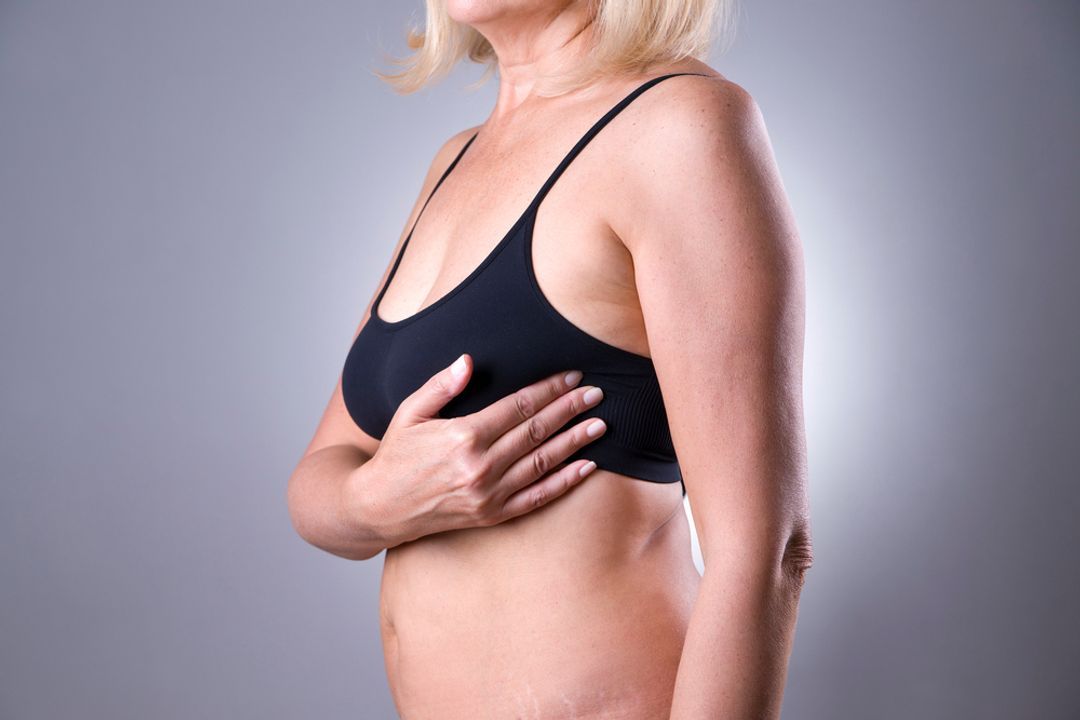
Menopausal breast growth can be the result of many factors. Firstly, we can look at hormones. There are substantial fluctuations in hormone levels starting at perimenopause, which eventually lead to hormonal loss, causing weight gain and attributing to breast growth.
Next, a drop in oestrogen levels causes breasts to undergo a process known as "involution", where your milk glands shut down, and the tissue is replaced by fat. Even though it sounds scary, involution is a natural process that is actually beneficial. Studies found that premenopausal women who have undergone breast involution had a decreased risk of breast cancer, while postmenopausal women who showed delayed breast involution had a correspondingly elevated breast cancer risk.
Secondly, this can be caused by weight distribution. With excess fat tissue moving from other parts of the body into the breasts, it's easy to see how it may lead to breast enlargement.
Thirdly, we have genetics. Your genes may also have a part to play, as research found that some women are genetically predisposed to having large breasts. However, the researchers have stated it is not yet clear what specific genes influence breast size.
All of these 3 reasons occur naturally, however, this doesn't mean that you should suffer if enlarged breasts cause you any discomfort - neither physical nor mental.
Larger breasts can be problematic for women post-menopause, and once the fat has accumulated in the breast tissue, it can be very hard to shift. A study conducted in 2020 found a link between breast size and aspects of health and psychological well-being in older women. It found that larger breasts may have a small but significant negative impact on breast-related well-being, body image and satisfaction, and may also be linked to an increase in back pain.
As women age, the chances of developing growths in the breast, such as tumours, fibroids, and cysts, increase. In the majority of cases, these lumps and bumps are noncancerous. However, it is safest to get any new lumps checked, as doctors most commonly diagnose breast cancer in people 50 years and older.
Some cancer cells develop into growths which you can feel under the skin.
Other symptoms can include:
- Nipple retraction and discharge
- Swelling in the breasts
- Dimpling on the breast skin
- Redness and scaling on the breasts
If you notice any of these symptoms, please make sure to consult a doctor. Regular ultrasounds and mammograms are highly advised, especially if you have a family history of breast cancer.
Other Ways Menopause Can Affect Your Breasts
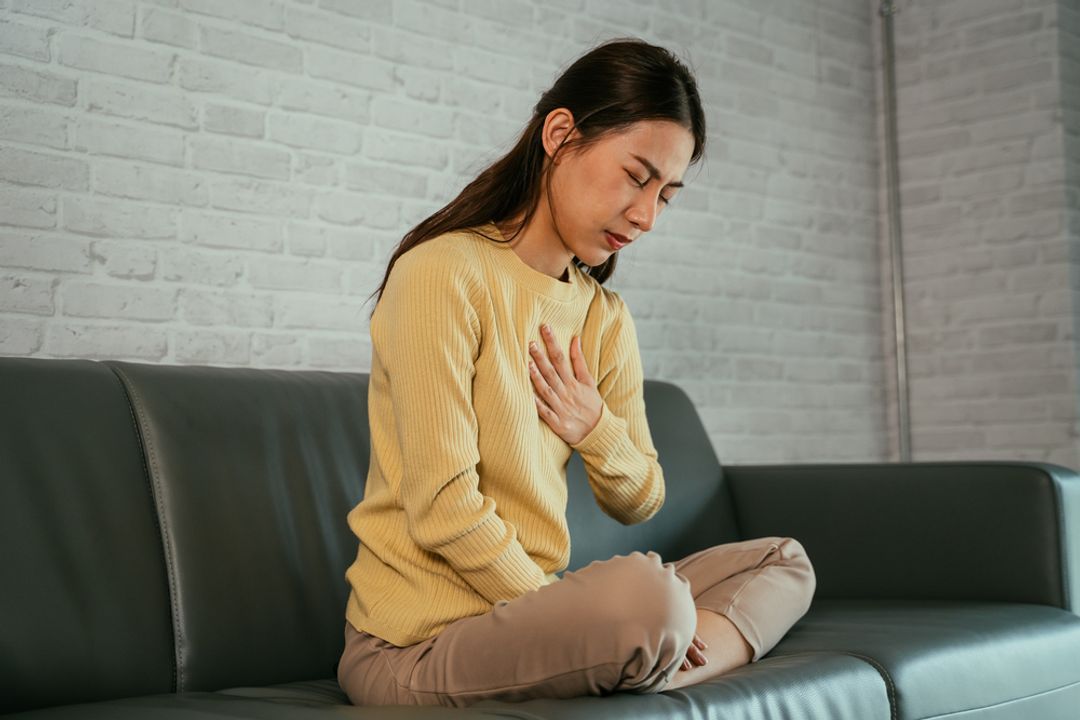
Apart from breast enlargement, loss of oestrogen during (peri)menopause also leads to anatomical changes in the breast tissue. Once abundant, oestrogen kept the breast connective tissue hydrated and elasticated. With the loss of oestrogen, mammary ducts and glands shrink, leading to breasts being less firm and losing their shape.
But this isn't the only way your breast could change in menopause.
Sore breasts during menopause
If you're experiencing soreness in your breasts during menopause, it might be linked to an ill-fitting bra. Make sure you're wearing the correct size, especially if your breasts have grown recently.
Tender breasts during menopause
Breasts can become tender or painful during menopause for the same reasons they have been during the menstrual period or early pregnancy. The rise in hormones can cause a fluid build-up in the breast tissue. It can also be the case that it's not the breasts themselves being painful but their extra weight causing back pain. If this is happening to you, try massaging your breasts with over-the-counter pain relief creams.
Menopause breast lumps
Though lumpy breast tissue may be caused by the mentioned hormonal changes, it is more common in those women who take hormone replacement therapy (HRT). Any new lumps you might be worried about would require an exam by your physician.
Itching
Itching is, too, linked to loss of oestrogen which leaves the skin dry, thin and shrinking. Thinning skin is more sensitive to fabrics, soap and sweat, making the breasts itchy and uncomfortable.
Sagging
Hormonal changes together with the depletion of collagen stores lead to a saggy appearance of the breasts. Breasts might appear further apart, there might be an increase in stretchmarks and nipples may change, too.
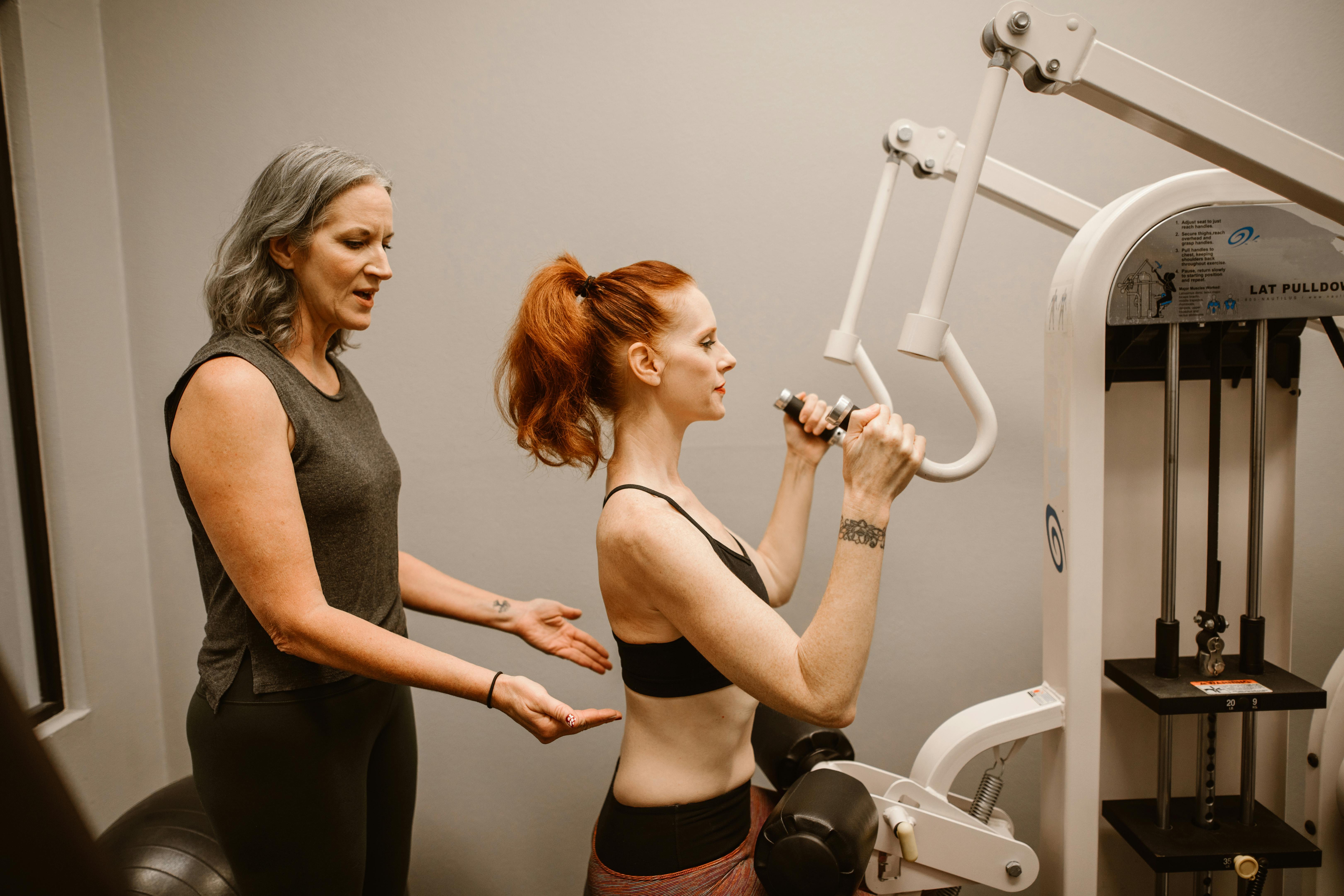
If you want to be proactive about your breast sagging, we highly recommend exercise, especially lifting weights. This type of exercise can also help you reduce the risk of developing breast cancer.
Ways To Support Breast Health During Menopause
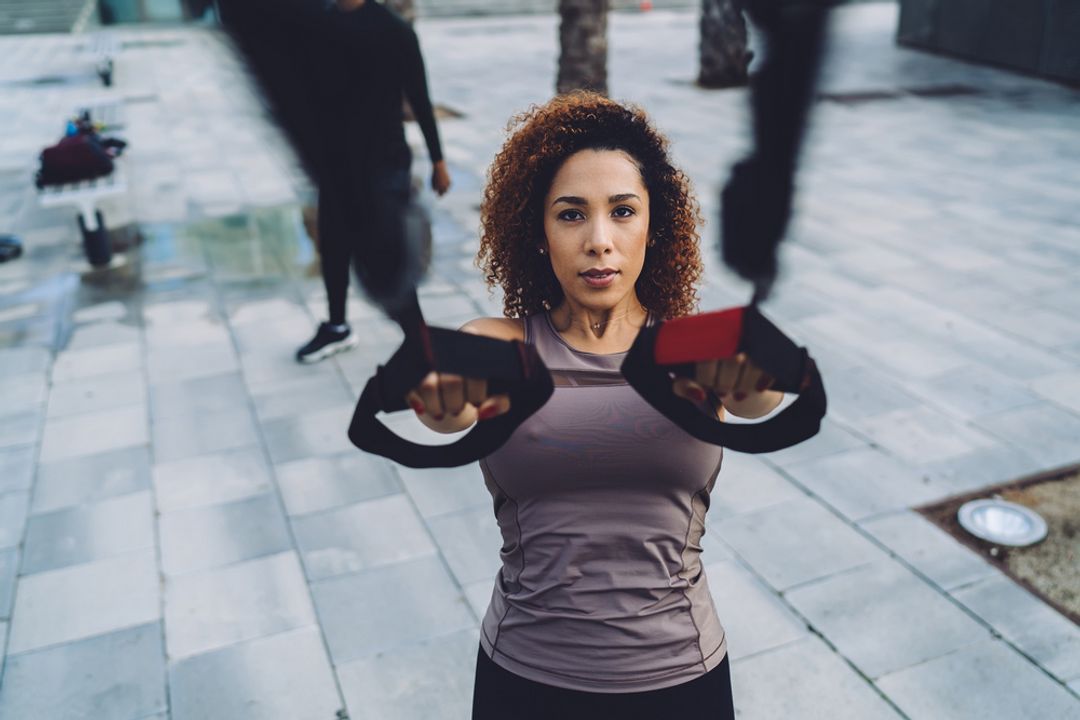
To get you started, here are some ways to support your breast health:
- Stop smoking – Smoking is a known health disruptor and breast health is not spared, either. Countless studies associated smoking with sagging breasts (even before average menopausal age) and accelerated ageing.
- Chest exercises – To support your breast tissue, it is important to build chest muscles that sit beneath it. Doing upper-body strength exercises that target your pectoralis muscles will help give your breasts a natural lift.
- Wear the right bra – Menopausal breast changes necessitate investing in new, better-fitting bras. Getting measured and fitted professionally will allow you to have a bra that supports your breasts better and may even help to alleviate back strain and give you a lifted appearance.
- Sooth soreness – Breast soreness tends to subside once you have reached menopause. However, you can do a few things if you continue to experience discomfort, including placing heat pads on your breasts or taking a warm shower, wearing a supportive bra, limiting your caffeine intake, and not smoking. There are also some supplements that can help with breast soreness, such as evening primrose oil, multivitamin-mineral supplements, and omega-3 fish oil.
- Watch your weight – Hormonal weight gain may cause breast enlargement which may put extra strain on your neck and back. Keeping your weight in a healthy range is generally recommended and that includes paying attention to the foods you eat.
- Stress – Stress might exacerbate breast tenderness during and after menopause. In a stressed state, your adrenal glands favour cortisol and adrenaline (rather than oestrogen and progesterone) production. Finding ways to manage stress plays a key role here, too.
Other menopause symptoms
Aside from breast changes, here are other menopause and perimenopause symptoms you should know to look out for:
- Changes in your period
- Hot flushes
- Changes in sex drive and vaginal health
- Sleep problems
- Irritability
- Hair growth (body hair) and hair loss
Menopause can be a very individual process for a lot of women, which is why it's important to talk about the different symptoms you could experience. Find out more about famous, and less talked about symptoms in our guide for menopause symptoms.
Together with our partners we have worked with a lot of menopausal women and helped them manage their symptoms and achieve a great quality of life. It all starts with early detection and proactive lifestyle changes. Read their stories here.
Closing Thoughts
Supporting your breast and overall health will also be helped by finding out your biological age which is very much impacted by hormonal changes your body undergoes during and after menopause. With the GlycanAge biological age test, you will get the insight and knowledge needed to understand the changes that could be made to guide you towards a healthy life before and after menopause.
We are happy to help you navigate all menopause-related challenges to ensure your health span is not compromised. Our test can give you a great overview of your lifestyle - to show how your diet, movement, sleep, stress management, and hormone levels are impacting your well-being.
With your results, you'll receive a complimentary one-on-one consultation with a specialist that is completely personalized to your needs. No question is too small to ask and no problem is too big to tackle. With small adjustments to your everyday life, you can significantly impact your biological age, and in turn your longevity.
Let us help you make empowered choices!
Frequently Asked Questions (FAQs)
Why are my breasts getting bigger after 50?
The reason your breasts are getting bigger after 50 could be menopause. This is caused by hormones, weight gain and weight redistribution.
Why are my breasts getting bigger after 40?
There are a number of reasons your breasts might be growing after 40. The most common are weight gain and menopause.
What causes breast enlargement after menopause?
The breasts can enlarge after menopause due to the hormone oestrogen levels going down. When the breasts go through an " involution " process, the milk glands shut down, and the tissue is replaced with fat. Coupled with the body's natural tendency to gain weight as part of the natural ageing process, it can result in the breasts growing in size.
How to decrease breast size after menopause?
There is no quick way to naturally reduce breast size after menopause. However, with a healthy balanced diet, regular exercise and a focus on building the chest muscles, it is possible to reduce breast size.
Which breast change is typical after menopause?
Women can experience all sorts of breast changes after menopause, all sorts of breast-related changes, including those pertaining to their size and sensitivity. Many find their breasts feel tender and achy, some notice their breasts losing shape and starting to sag, while others find their breasts become smaller or bigger.
Does taking oestrogen make breasts bigger?
Some women may find oestrogen replacement therapy (ERT) can stimulate breast growth – but this is not always the case. Studies have shown that ERT is only moderately associated with an increase in breast size for menopausal women, and weight gain is more likely to cause a growing cup size.
Will my breasts go back to normal after menopause?
Breasts may change throughout life, including during (peri)menopausal period, as well as with the menstrual cycle, pregnancy or breastfeeding. They may also change in response to dietary changes, weight management and exercise plans, which are some ways to impact their look and shape even after menopause.
.png?alt=media&token=3bf9245f-a1d4-441a-9925-00bd43bd8d2a)

